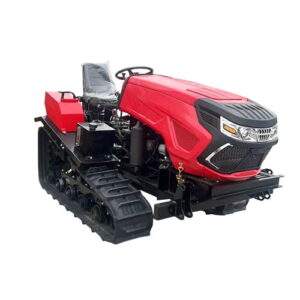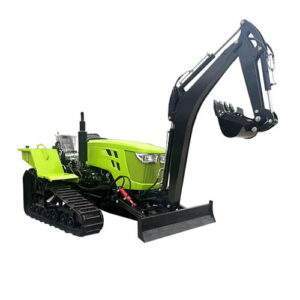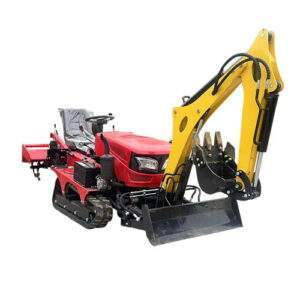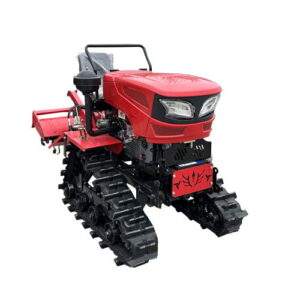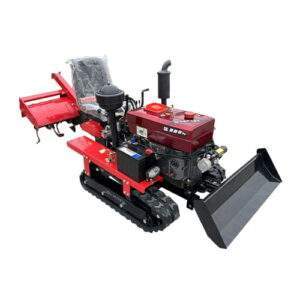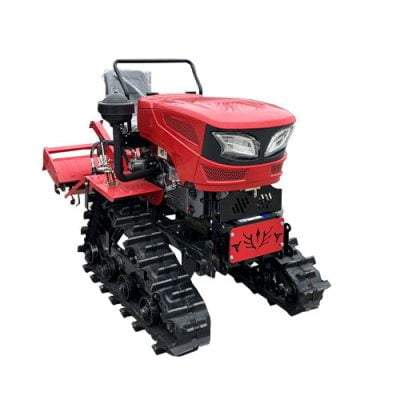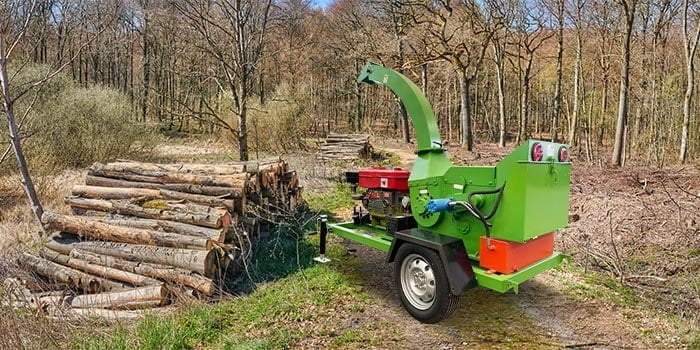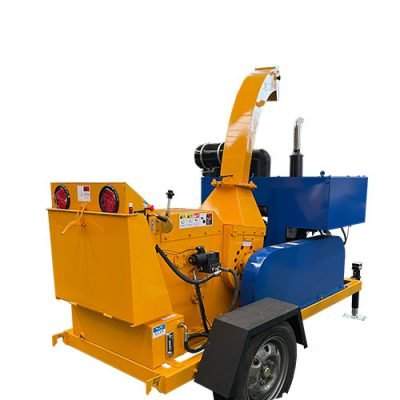Innovations in Mini Farm Tractors: What to Expect in 2024
Introduction
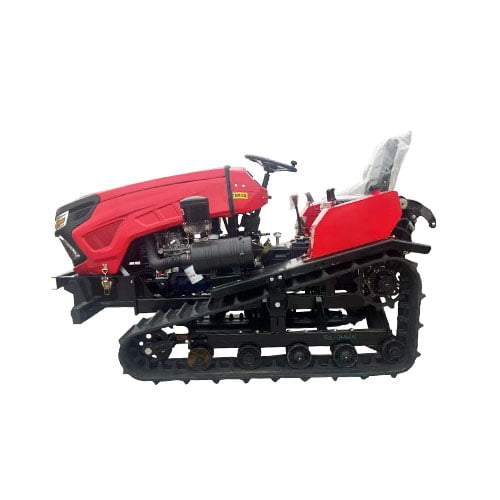
As we step into 2024, the agricultural industry is poised for a wave of innovation in the realm of mini farm tractors. These compact yet powerful machines have revolutionized small-scale farming, offering efficiency, versatility, and convenience to farmers around the world. In this blog post, we’ll delve into the latest advancements and technological breakthroughs shaping the landscape of mini farm tractors in 2024.
Precision Agriculture Technologies
The integration of precision agriculture technologies into mini farm tractors represents a groundbreaking shift in farming practices, poised to revolutionize the way farmers approach cultivation and land management. These cutting-edge innovations encompass a wide range of sophisticated tools and systems designed to enhance precision, efficiency, and sustainability across every stage of the farming process.
At the forefront of this technological transformation are GPS-guided navigation systems, which leverage satellite positioning data to provide pinpoint accuracy in tractor movement and operation. By precisely mapping out fields and designated routes, farmers can optimize tractor paths, minimize overlap, and maximize coverage, resulting in more uniform and efficient seed placement, fertilization, and spraying.
Complementing GPS navigation are advanced sensors meticulously integrated into mini farm tractors. These sensors serve as the eyes and ears of the tractor, continuously monitoring soil conditions, crop health, and environmental variables in real-time. From soil moisture sensors that gauge hydration levels to crop health sensors that detect signs of stress or disease, these data-driven insights empower farmers to make informed decisions and adapt their practices accordingly.
Central to the efficacy of precision agriculture technologies are automated control mechanisms that streamline tractor operation and task execution. Through sophisticated algorithms and onboard computing systems, mini farm tractors can autonomously adjust speed, depth, and application rates based on real-time data inputs and predefined parameters. This level of automation not only enhances precision but also minimizes human error, ensuring consistent and optimal outcomes across diverse farming tasks.
Electric and Hybrid Powertrains
The agricultural sector is undergoing a profound transformation driven by an increasing focus on sustainability and environmental stewardship. At the forefront of this shift is the adoption of electric and hybrid powertrains in mini farm tractors, marking a significant departure from traditional diesel-powered models.
Electric and hybrid mini farm tractors offer a myriad of benefits that extend beyond their conventional counterparts. One of the most compelling advantages is their significantly lower emissions profile. Unlike diesel-powered tractors that emit harmful pollutants such as nitrogen oxides and particulate matter, electric and hybrid models produce zero tailpipe emissions during operation. This reduction in emissions not only improves air quality but also mitigates the tractor’s contribution to greenhouse gas emissions, helping to combat climate change and promote environmental health.
In addition to their environmental benefits, electric and hybrid mini farm tractors boast reduced operating costs, making them an economically attractive option for farmers. With fewer moving parts and simplified maintenance requirements compared to diesel engines, electric and hybrid powertrains offer lower maintenance and repair costs over the tractor’s lifecycle. Moreover, the cost of electricity is typically more stable and predictable than fluctuating diesel prices, providing farmers with greater financial stability and cost certainty.
Furthermore, electric and hybrid mini farm tractors are renowned for their enhanced efficiency and performance. Electric motors deliver instantaneous torque, providing responsive and smooth acceleration for improved maneuverability and productivity in the field. Hybrid models leverage a combination of electric and internal combustion power sources to optimize power delivery, enabling seamless transitions between power modes based on demand and operating conditions. This versatility ensures that farmers can tackle a wide range of tasks with maximum efficiency and precision.
Autonomous Operation Capabilities
The advent of autonomous operation capabilities in mini farm tractors represents a transformative leap forward in agricultural technology, promising to reshape farming workflows and redefine the role of farmers in the field. At the heart of this revolution are cutting-edge advancements in artificial intelligence (AI), computer vision systems, and sensor technologies, which empower mini farm tractors to execute tasks with unprecedented precision and efficiency while minimizing the need for human intervention.
Central to the autonomy of these tractors are AI-driven algorithms that serve as the brains behind their operation. These algorithms leverage vast amounts of data collected from sensors, satellite imagery, and historical farming practices to make informed decisions in real-time. By analyzing factors such as soil conditions, weather patterns, and crop health, AI algorithms can autonomously plan and execute farming tasks with unparalleled accuracy and effectiveness.
Complementing AI algorithms are sophisticated computer vision systems that enable mini farm tractors to perceive and interpret their surroundings with human-like precision. Equipped with cameras, LiDAR sensors, and other imaging technologies, these systems can identify crops, weeds, and obstacles in the field, allowing the tractor to navigate complex terrain and perform tasks with remarkable dexterity. This capability not only enhances safety and efficiency but also opens up new possibilities for precision farming practices such as targeted weed control and individualized crop management.
Smart Farming Solutions

The integration of smart farming solutions into mini farm tractors represents a pivotal advancement in agricultural technology, heralding a new era of data-driven decision-making and operational efficiency. By leveraging cutting-edge digital tools and analytics platforms, farmers can harness real-time data insights to optimize every aspect of their farm operations and mitigate operational risks.
At the heart of smart farming solutions are advanced data analytics capabilities that enable farmers to unlock valuable insights from the wealth of data generated by their mini farm tractors and associated equipment. By aggregating and analyzing data on soil conditions, weather patterns, crop health, and equipment performance, farmers gain a comprehensive understanding of their farm’s dynamics and can make informed decisions to maximize productivity and yield.
One of the key applications of smart farming solutions is predictive analytics for crop management. By analyzing historical data and environmental factors, predictive models can forecast crop yields, identify potential pest or disease outbreaks, and optimize planting and harvesting schedules for maximum efficiency. This proactive approach to crop management enables farmers to anticipate and mitigate risks, resulting in higher yields and improved profitability.
Ergonomic Design and Comfort Features
| Feature | Description |
|---|---|
| Adjustable Seating | Allows operators to customize seat position and height to their comfort, reducing strain and fatigue. |
| Ergonomic Controls | Designed for intuitive operation and minimal strain on the operator’s hands and wrists. |
| Climate-Controlled Cabins | Maintains a comfortable temperature inside the cabin regardless of external weather conditions. |
| Noise-Reducing Technologies | Utilizes insulation and soundproofing materials to minimize engine and operational noise levels. |
FAQ
Q: Are electric mini farm tractors suitable for all farming applications?
A: Electric mini farm tractors are well-suited for a wide range of farming tasks, particularly those involving light to moderate loads and short to medium operating ranges. However, their suitability may vary depending on specific application requirements and operational constraints.
Q: How do autonomous mini farm tractors navigate fields and obstacles?
A: Autonomous mini farm tractors utilize a combination of GPS technology, sensors (such as LiDAR and radar), and advanced algorithms to navigate fields and detect obstacles in real-time. These systems enable precise and safe operation, even in complex agricultural environments.
Q: What are the benefits of integrating smart farming solutions into mini farm tractors?
A: Smart farming solutions provide farmers with actionable insights, enabling data-driven decision-making, optimized resource allocation, and proactive management of farm operations. By harnessing real-time data and analytics, farmers can enhance productivity, reduce costs, and mitigate risks.
Q: Are there any regulatory considerations for autonomous mini farm tractors?
A: As autonomous technology advances, regulatory frameworks governing the operation of autonomous vehicles, including mini farm tractors, continue to evolve. It’s essential for manufacturers and farmers to stay informed about relevant regulations and compliance requirements to ensure safe and lawful operation.
Q: How do innovations in mini farm tractor design contribute to operator comfort and safety?
A: Innovations in mini farm tractor design prioritize operator comfort and safety by incorporating features such as ergonomic seating, intuitive controls, climate-controlled cabins, and noise-reducing technologies. These enhancements reduce operator fatigue, improve visibility, and enhance overall productivity and well-being.
Conclusion
The year 2024 marks a pivotal moment in the evolution of mini farm tractors, with a myriad of innovations poised to transform small-scale agriculture. From precision agriculture technologies to electric powertrains and autonomous operation capabilities, these advancements hold the promise of increased efficiency, sustainability, and profitability for farmers worldwide.

